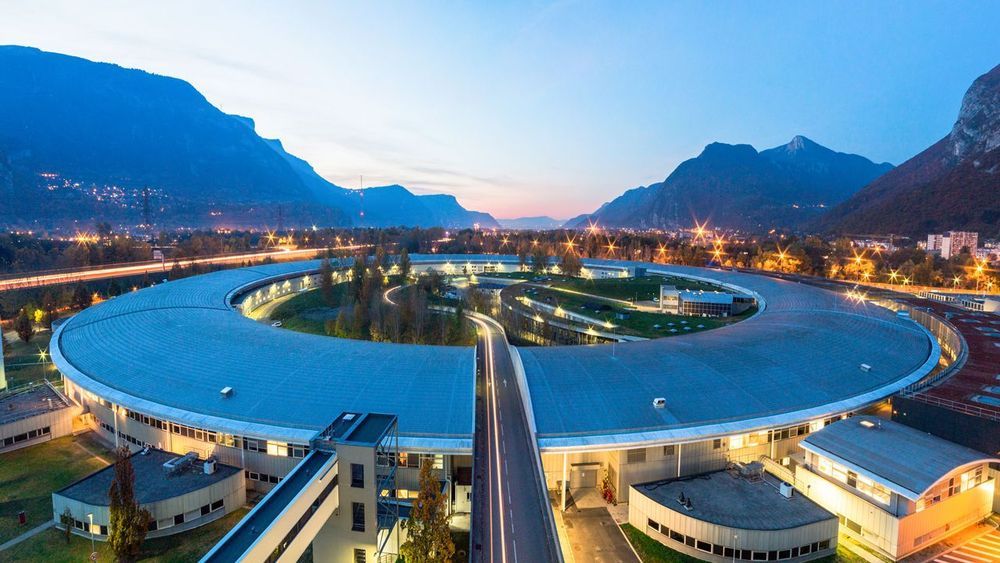A brilliant new light shines in Grenoble, France, where officials at the European Synchrotron Radiation Facility(ESRF) last week announced the reopening of their completely rebuilt x-ray source. The ring-shaped machine, 844 meters around, generates x-ray beams 100 times brighter than its predecessor and 10 trillion times brighter than medical x-rays. The intense radiation could open up new vistas in x-ray science, such as imaging whole organs in three dimensions while resolving individual cells.
Shining 100 times brighter than its predecessor, the new European Synchrotron Radiation Facility is the first of more than a dozen of its kind in the works.




